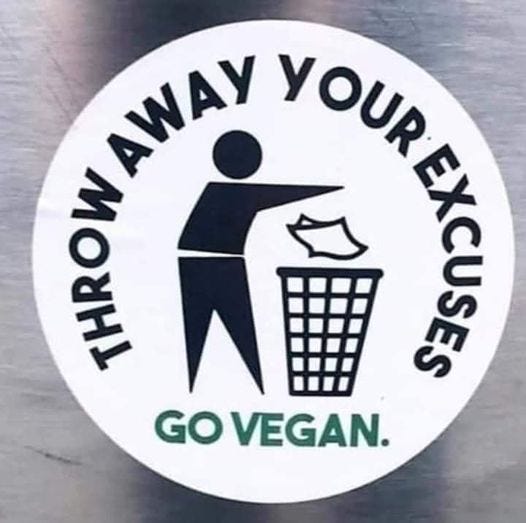In the age of information overload, capturing attention and sparking conversation can be a daunting task. Thankfully, the internet has provided a powerful tool for promoting ideas: the meme. These bite-sized packages of humor, relatability, and cultural relevance are proving to be a surprisingly effective way to spread the message of veganism.
Firstly, memes tap into the power of humor and relatability. By using familiar pop culture references, witty captions, and relatable scenarios, they can disarm potential resistance and engage viewers in a non-confrontational way. Humor can act as a social lubricant, fostering a more open-minded approach to the vegan message.
Secondly, memes are highly shareable. Their concise format and visual appeal make them easily digestible and perfect for the fast-paced online world. With a few clicks, a meme can reach a wide audience, potentially going viral and sparking conversations far beyond the initial creator. This organic reach allows individuals to become vegan advocates themselves, amplifying the message and fostering a sense of community.
Finally, memes can address complex topics in a lighthearted and creative manner. By using humor and satire, they can gently poke fun at common misconceptions about veganism, subtly challenging existing perspectives. For example, a meme comparing the struggles of balancing a burger with the ease of grabbing a plant-based salad can highlight the convenience factor of vegan options. This indirect approach can avoid the preachy tone that often creates resistance and instead, encourages viewers to question their assumptions.
However, it's important to acknowledge that memes are not a silver bullet. Their effectiveness can depend on the specific meme and its target audience. It's crucial to ensure these messages are delivered with respect and avoid resorting to negativity or condescension. Additionally, relying solely on memes might not be enough to comprehensively address the ethical and environmental aspects of veganism.
In conclusion, memes offer a unique and powerful tool for promoting veganism. Their ability to resonate with audiences through humor, relatability, and virality makes them an effective way to spark conversations, challenge perspectives, and ultimately, encourage a more plant-based future. However, responsible use and a multi-pronged approach are key to maximizing their impact and ensuring a positive representation of the vegan movement.
Sources:
Beneteau, J., & Dawson, S. (2020). The memeification of social movements: affordances and limitations in the online contestation of power. Information, Communication & Society, 23(11), 1580-1598.
Gigliotti, B., & Bowman, T. E. (2017). The spread of social movement ideas on Twitter: The role of emotional appeals and framing strategies. New Media & Society, 19(6), 787-808.
https://m.facebook.com/goveganoutfitters/photos/a.509178949570508/1259320791222983/?type=3
Visit Our Amazon Store!
All sales of our Vegan Products help promote animal rights worldwide!
General Resources
Books:
Dominion: The Power of Animals in Nature and in Our Imagination by Matthew Scully
Animal Liberation by Peter Singer
Eating Animals by Jonathan Safran Foer
A Billion Hungry Mouths: Feeding the World Without Consuming the Planet by Colin Tudge
Websites and organizations:
Documentaries:
Articles:
"The Case for Animal Rights" by Tom Regan
‘‘Why We Love Dogs, Eat Pigs, and Wear Cows: An Introduction to Carnism’’ by Melanie Joy
‘‘Animal Rights: The Abolitionist Approach’’ by Gary L. Francione
‘‘Fellow Creatures: Our Obligations to the Other Animals’’ by Christine Korsgaard
Seeds of Compassion: Finding Jesus Christ in a Vegan World by Michael Corthell
Receive a single informative article daily at 12:01 AM by email. For additional updates, explore my homepage with exciting vegan and plant-based news content and delightful and delicious recipes. Stay connected to the vegan world and all it has to offer.
Visit The Vegan Project Global our Facebook page for more vegan outreach and education.
Also, visit our new YouTube channel
The information on this vegan/plant-based blog is for general informational purposes only. It is not intended as legal, medical, or professional advice. Readers should consult with appropriate professionals for specific advice tailored to their situation. The blog owner is not responsible for any reliance on the information herein.






